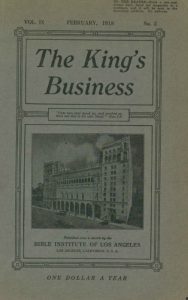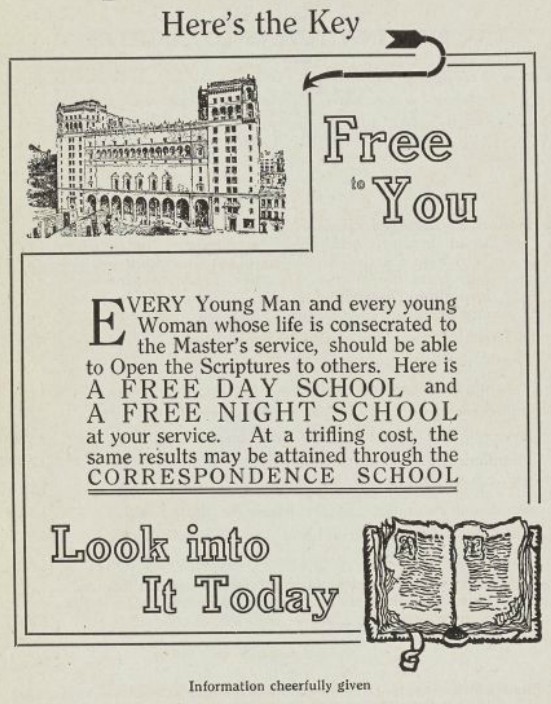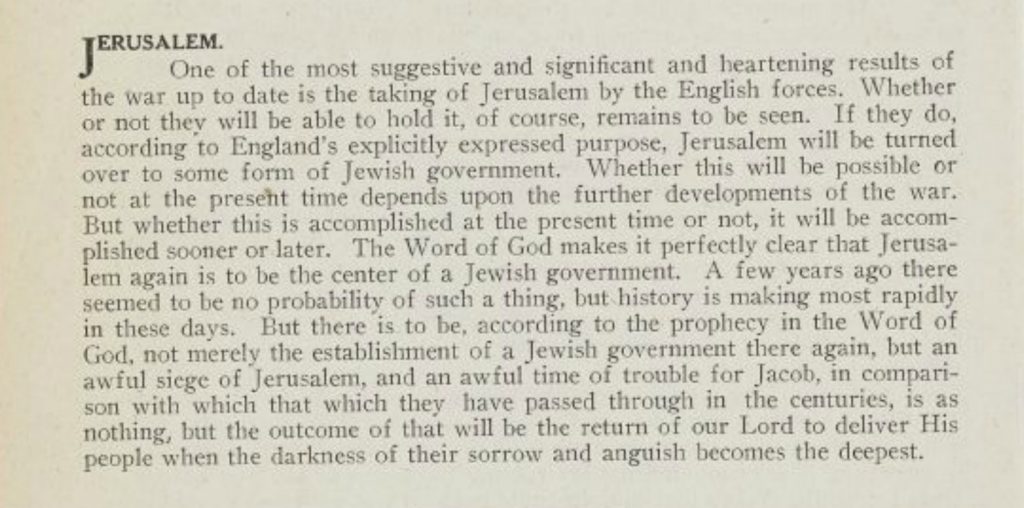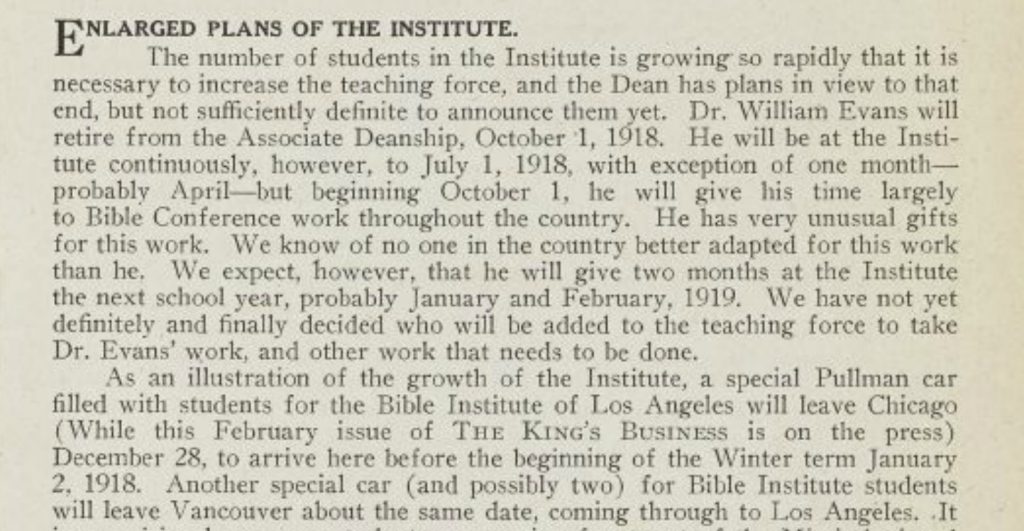 Now that Biola’s magazine The King’s Business is all digitally available online (hurrah!), I’ve begun a leisurely reading program, going through the Bible Institute’s history on a 100-year delay.
Now that Biola’s magazine The King’s Business is all digitally available online (hurrah!), I’ve begun a leisurely reading program, going through the Bible Institute’s history on a 100-year delay.
The magazine began in 1910, and by 1918 it was under R.A. Torrey’s editorial hand and was up to a full 100 pages of material monthly. Each issue featured some long-form articles on spiritual and Biblical subjects, usually by writers of respected and recognized names. But the bulk of the 100 pages were “homiletical helps” and Sunday School material, which means the school knew what it was about: training believers to do Christian work.
There were also editorials in each issue, and it’s interesting to watch World War I develop from Biola’s point of view. Here are a few things that caught my eye in the February 1918 issue.
First, an awkwardly-placed note on the cover, explaining how to have your copy of the King’s Business re-routed to soldiers overseas: Just put a stamp on it and hand it to the postman. “No address” necessary.

Second, a proud announcement of the fact that instruction at the Bible Institute of Los Angeles was free! Or, more accurately, “Free to You” (an acknowledgement that somebody must have been paying the cost). “Information cheerfully given,” says the ad.

Don’t try to cash this ad in at today’s Biola… we’ve grown into a university subject to the same fiscal concerns as any player in modern higher education. Also we’re not in that epic structure at Sixth and Hope anymore. But if you’re looking for tuition-free Bible instruction in Los Angeles, check out our friends at Los Angeles Bible Training School.
Third, the masthead of the issue:

Looks like A.M. Row did all the grunt work, but Biola co-founder T.C. Horton is still heavily involved. William Evans had come from Moody to Biola in 1915, following Torrey. Evans would retire from Biola later in 1918 (see below).
In fact, that reminds me that the names we see in this issue are pretty much the classic early B.I.O.L.A. team that would train Charles Fuller after he applied for admission in the summer of 1919. R. A. Torrey looms large over everything, of course, but Evans provides a lot of material in this issue, as does Anna Dennis: these are the three teachers that Fuller would point back to as most influential on him.
In terms of dispensationalist history, it’s interesting to see this brief note about the capture of Jerusalem by the English at the end of 1917, and its relation to prophecy:

And in terms of institutional history, here’s an announcement that some big plans are in the works for the school:

I’ve never heard a school describe its growth in terms of how many Pullman cars full of students it would have to commission!
As for the war, here in early 1918 the King’s Business notes that “the possibility is that the war will go on for a long time…There seems to be every probability that practically all of us will suffer…”
A series of brief editorials (by Torrey, I think) reflect sternly on the threat of death that is brought on by war: “If a Christian man is called upon to lay down his present body, shot through and through with bullets, or blown to pieces by bombs, he knows that he has a far better body, ‘a building of God, a house not made with hands, eternal in the heavens,’ and while he is waiting for that resurrection body, though he is absent from the body he is ‘at home with the Lord’ (2 Cor. 5:1-8).” The next editorial actually tries to reckon up some of the advantages that may accrue to national character as the result of wartime hardships: people may actually wake up from material comforts to recognize their spiritual condition.